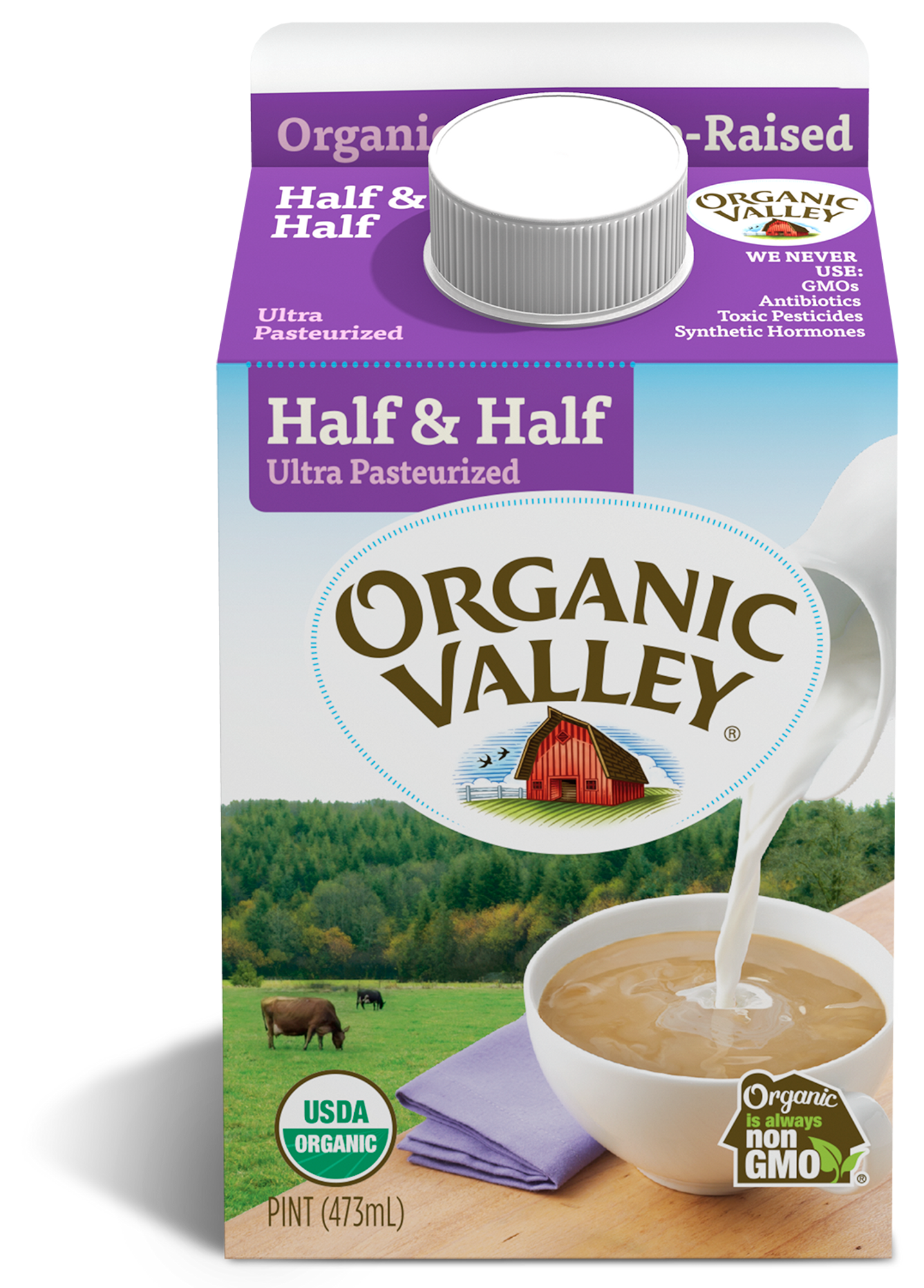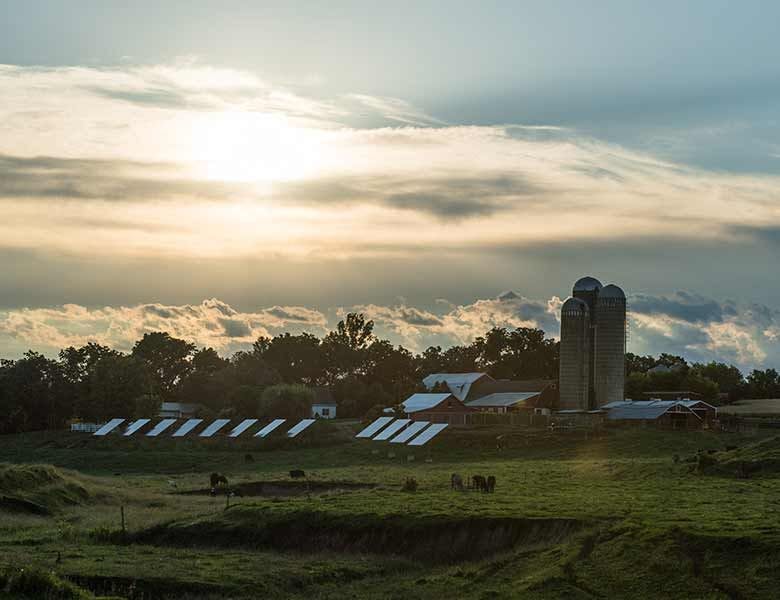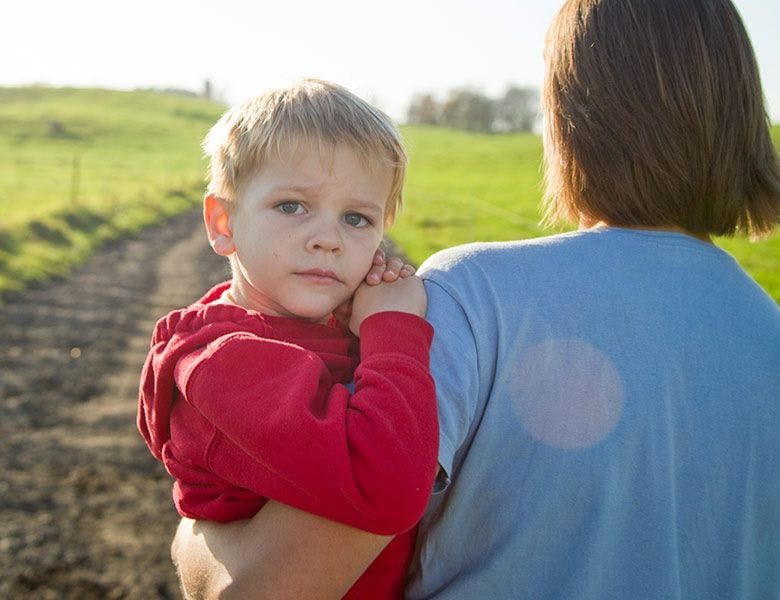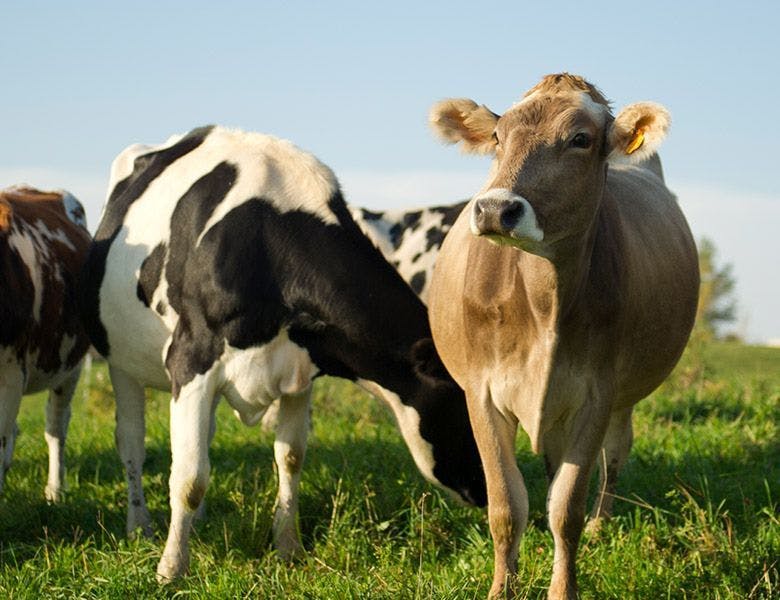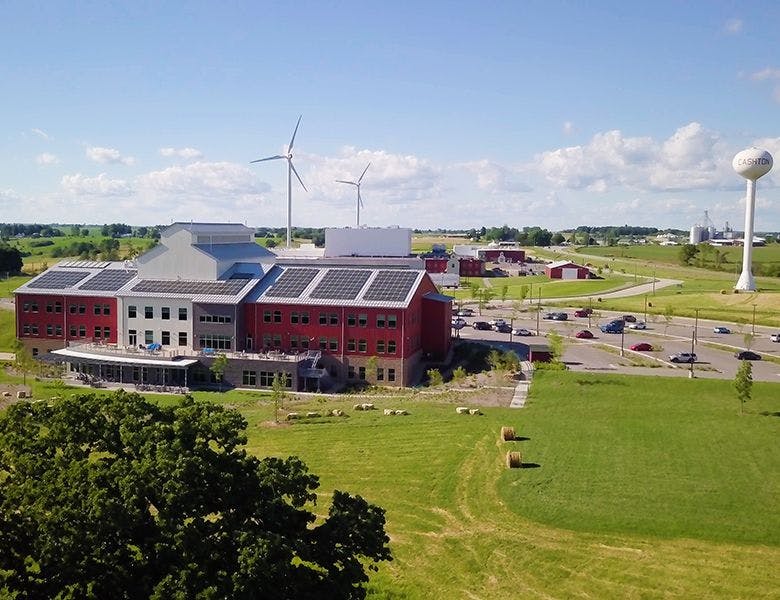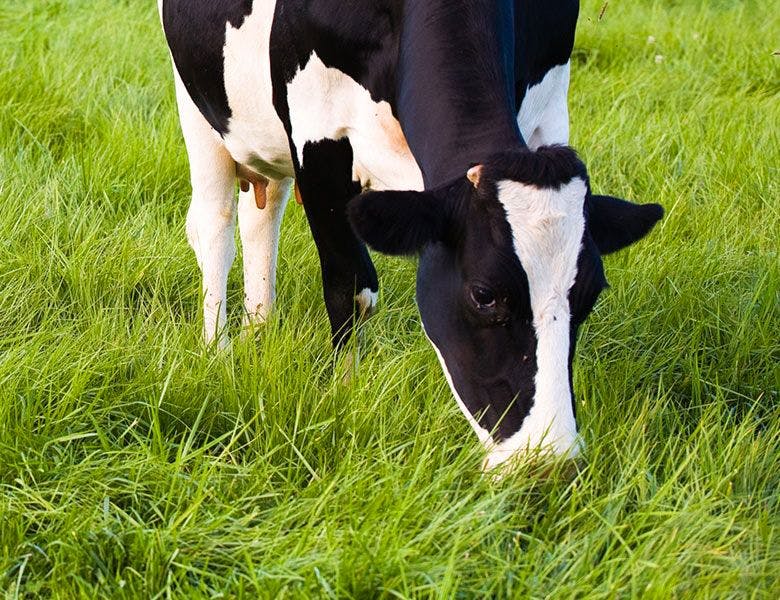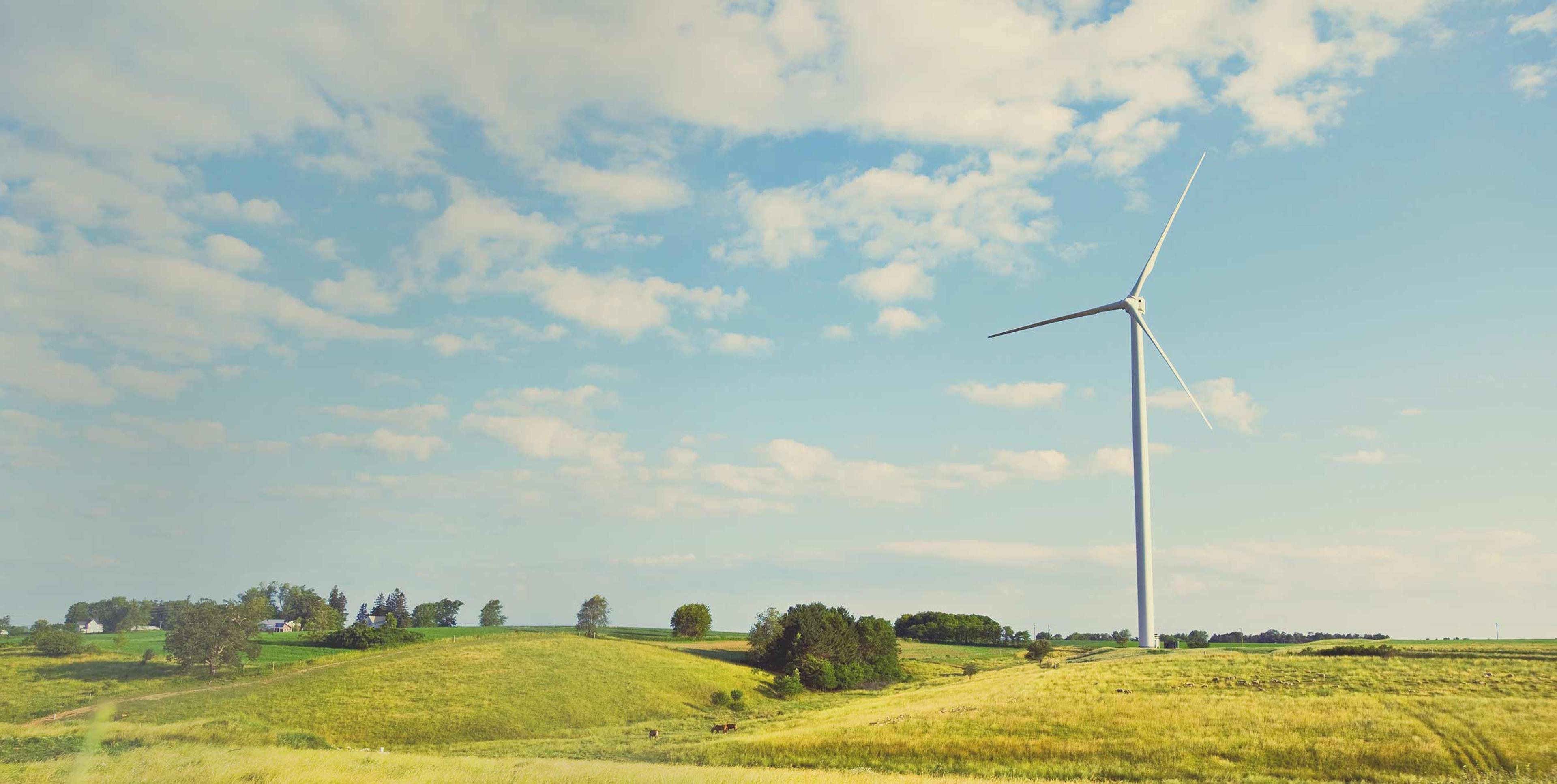
30 years in, it’s still the heart and soul of being organic.
Socially, economically, environmentally: sustainability never settles.

Solar. Community. Future.
How do you improve rural America? By working together. This is the story of how dreamers turned into doers, bringing solar to rural communities while making Organic Valley 100% renewable-powered.
Read more

Powering the Good, 100%
We are building on our commitment to protect our natural environment. Organic Valley sources all of the electricity for its owned facilities from 100% renewable energy. And it happened through partnership and cooperation.

Can Dairy Farming be Carbon Positive?
Three Organic Valley cooperative member farms are breaking ground on a new, higher bar for carbon sequestration and greenhouse gas emissions reductions called Climate-Smart Farming (CSF), with the goal of achieving carbon neutrality, or even a carbon-positive position.

Dr. Silvia in Senegal
Our in-house animal nutritionist Dr. Silvia Abel-Caines, spent two weeks on an inspiring, boots-on-the-ground example of Principle 6: Cooperation Among Cooperatives. Dr. Silvia’s mission consisted of volunteering her expertise to the Dental Hayre women’s cooperative in the West African nation of Senegal.
Farm
Environment
You

Ihm Organic View Farms - John and Deb Ihm of Grant County, Wisconsin
The Ihms have worked closely with Organic Valley’s Sustainability Team to develop alternative energy on their farm. In 2011, they installed a 21.5kW solar electric system in the hen paddock. Not only does it produce all the power needed for the chicken barn, but it produces excess to sell back to the local utility.

David Hardy - Aaron and Sarah Hardy of Herkimer County, New York
Son of long-time Organic Valley farmer owners David and Susan Hardy, Aaron and his wife Sarah now operate Arabeth Farm—a start-up, certified organic, grassfed beef farm. They received a New York State New Farmers Grant of $50,000 to assist with the construction of a cattle barn, purchase of a skid steer and new pasture fencing.

The Corse Farm Dairy LLC - Leon, Linda and Abbie Corse of Windham County, Vermont
Leon Corse is the fifth generation of Corses on their 400-acre farm in southern Vermont. With the help of a USDA Rural Energy for America Program (REAP) Grant $23,917, they installed a 32.37kW solar electric system to offset 130% of the farm’s annual nonrenewable electricity consumption resulting in an annual energy cost savings of more than 100%.

Sar-Ben Farms, Inc. - Steve and Susan Pierson along with their sons Kevin and Ryan of Marion County, Oregon
Thanks to Organic Valley’s sustainability department, we were able to get grants to help us expand our vision by installing a 30kW solar electric system that offsets 10% of the farm’s annual nonrenewable electricity consumption.

Organic Valley Farm - Robin and Karen Brekken of Crookston, Minnesota
Sustainability’s Resource Development Program helped Robin secure more than $350,000 in grants from USDA and the state of Minnesota to purchase and develop a value-added feed pelletizing system that will turn potential crop losses of $230,000 into a potential financial gain of $460,000.

Heritage Acres - Rick Langland of Iowa, recipient of the 2016 Leadership n Sustainability Award
Rick turned his drive and intelligence toward energy use on his farm with an eye to reducing consumption of non-renewable energy. Rick worked with Organic Valley's Sustainability Department, and they secured more than $63,000 in grant funding and technical assistance to install a solar system that provides almost 75% of the farm’s electricity needs.

Regli Jersey Reas Creek - Jim and Susan Regli of Humboldt County, California
The Reglis were awarded a $533,141 California Department of Food and Agriculture (CDFA) Alternative Manure Management Program (AMMP) grant, along with an additional $200,073 from the Natural Resources Conservation Service (NRCS). The projects implemented on the Reglis’s farm will reduce greenhouse gas emissions and improve water quality and soil health.

Mahalko Dairy - Kevin Mahalko of Wisconsin, recipient of the 2017 Leadering in Sustainability Award
Carbon gases are a leading cause of climate change, but well-managed, organic grassland pulls carbon gas from the atmosphere and sequesters it in the soil and plant roots. The farm’s long history of managed grazing and pasture improvements has resulted in a 67% increase in soil organic matter.






